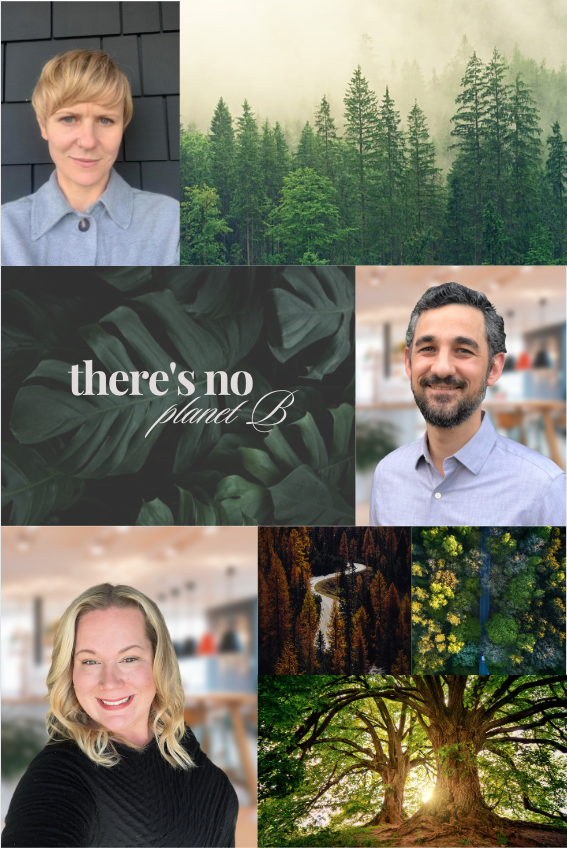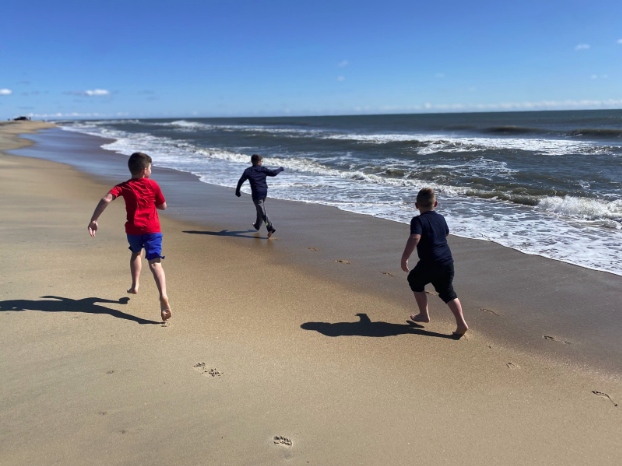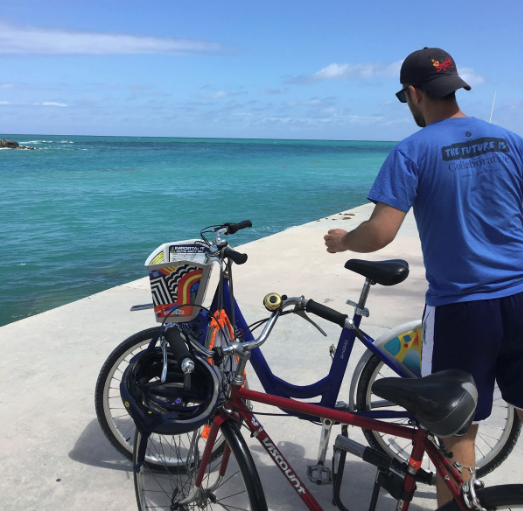There's No Planet B
The idea of living sustainably is a simple one, putting this into practice however can seem daunting to many. To put it simply, sustainable living means that we live with, and use, Earth’s resources responsibly so that future generations get the chance to use them as well. There are many ways people choose to lead a more sustainable lifestyle and we’ve had the opportunity to sit down with a few of our team members to learn how- and why- they choose to practice sustainability.

Why sustainability?
“When I think of sustainability, I picture my children’s future and their children's future. I think about how beautiful the world that we get to enjoy today is and how important it is to guard Earth’s resources so generations can continue to take in beautiful sunsets, walks on clean beaches and all of those experiences we’ve all come to love and appreciate. Sustainability means our children are able to breathe clean air, drink clean water and grow up in a nontoxic environment. If we don’t all pitch in to create a more sustainable world we run the risk of animals going extinct, air pollution and diminishing natural environments.”
Sue (Director, Customer Care)

Eric: Personally, sustainability means actively considering social and ecological impacts in civic life and day-to-day decision making, and trying to live within the “safe and just space for humanity” as described in Doughnut Economics.
I find this to be an incredibly accessible framework for those just beginning to think about sustainability, and something that is also deep enough to anchor those who are more advanced in their sustainability thinking and practices.
More broadly, I believe it means a set of principles and practices that can guide societies and humanity as a whole towards greater aggregate abundance, more stability and less scarcity and suffering.
Eric (Director, Business Intelligence)

Jillian: For me, sustainability is like going on a long hike. The journey will take some planning and foresight, and along the way I need to be mindful of my actions and the impact they have on the environment and my fellow hikers. I’ll need to pack efficiently with only what is essential, bring a refillable water bottle, maybe some healthy snacks, and make sure to leave no trace. Just as a rewarding hike requires preparation, living sustainably means I need to consider the long-term impact of my actions both in preparation for, during, and after my journey.
Jillian (Proposal Manager)
So, you want to get started but don’t know how?
- Get educated - get involved with local organizations dedicated to sustainability.
- Cut down on plastics by investing in reusable containers.
- Limit car usage by biking, walking or taking public transit (for those who are able).
- Eat a primarily plant-based diet.
- Shop locally at B-Corps and stores with good labor standards.
- Be mindful of home energy and water usage.
- Avoid fast fashion retailers and instead take a more mindful approach to shopping, saving up for more durable, classic clothing items that will last.
- Support organizations and policies that make these things easier, more accessible, and more joyful to greater numbers of people. This includes things like upzoning, multimodal transportation advocacy, and food justice initiatives.
Choosing to live sustainably doesn’t have to feel overwhelming, there are many small changes you can make that will have an impact on our environment. There are also many benefits to leading a sustainable lifestyle, including saving money, improving your health and conserving resources.
Learn more about sustainability:
Learn more about the steps Enervee is taking to be more sustainable here.

